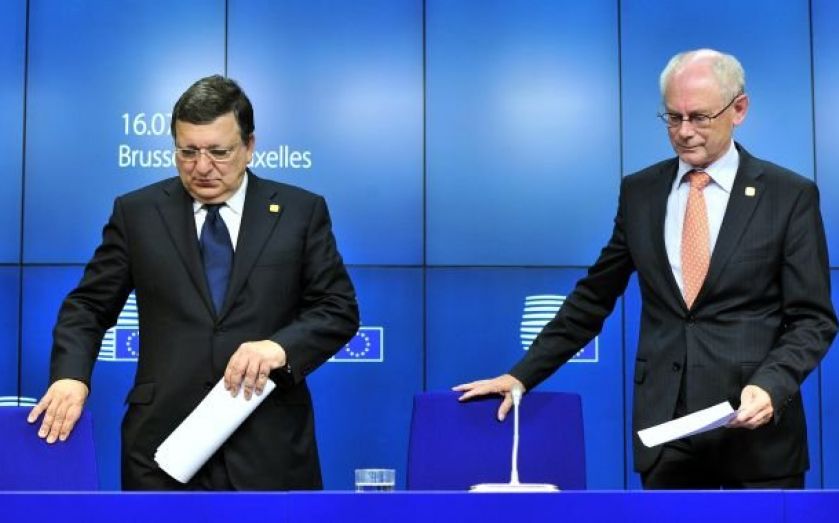| Updated:
European leaders urged to approve most severe Russian sanctions yet

European leaders are being urged to approve a new set of sanctions against Russia, spanning the financial, defence and energy industries.
The package being put forward represents “phase three” of the European Union's plan to hit entire sectors of Russia's economy. If approved, it will result in the most wide-ranging sanctions to have been imposed on the Kremlin to date, by either the US or Europe.
European council president Herman Van Rompuy outlined the plans in a letter to European prime ministers on Friday. In it, he urged them to give ambassadors authority to accept the proposals next Tuesday, when they are due to come to a decision on the legislation.
According to the FT, sanctions listed include banning Europeans from buying or selling stocks or bonds in large Russian state-owned banks, barring the export of high-tech equipment needed by Russian energy companies for deep-sea drilling and shale oil projects, and imposing an embargo on all weapons sought by the Russian military.
“My assessment is that this package strikes the right balance when it comes to cost/benefit ratio and scalability/reversibility over time,” Van Rompuy wrote. “It should have a strong impact on Russia’s economy while keeping a moderate effect on EU economies.”
EU commission president José Manuel Barroso has expressed his support for the proposed measures. “I believe that this is an effective, well-targeted and balanced approach, providing the flexibility to adjust our reaction to changes on the ground,” he said.
The latest sanctions reflect tensions that have mounted between Russia and the EU after pro-Russian separatists were reluctant to give investigators access to the crash site of Malaysian Airlines MH17, which was shot down in rebel-held territory in the east of Ukraine last Thursday.
Previous action against the Kremlin has been comparatively cautious, limited to sanctions against a handful of individuals, banks and energy companies. The latest measures are a clear indication of a change in Europe's attitude towards Russia, from London to Paris and Berlin.
However, the proposal still takes into account the concerns that some European countries have had about the effect on trade: Rompuy has noted that sanctions would not apply retroactively, meaning that France's €1.2bn contract to sell two Mistral-class helicopter attack ships to the Russian navy would not be lost as a result of the arms embargo. Additionally, existing stocks and bonds sold by Russian banks would not be affected.
Van Rompuy also notes that, “in view of the need to preserve EU energy security”, the sanctions will only be imposed on the Russian oil sector and not on the gas industry.